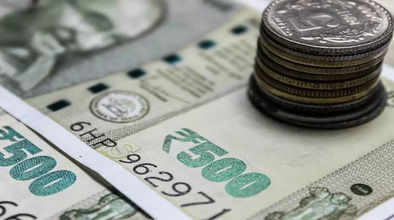Personal Loan: Loan approved, but intention changed! Can a personal loan be cancelled now?

Want to cancel a personal loan after it is approved? Do we get such an option from the bank? Know what is the cooling-off period, rules of pre-payment and other important information related to personal loan.
Personal loan is an excellent option to meet sudden financial needs. It is easily available on the basis of your credit score and income, without pledging anything. But, many times it happens that after the loan is approved, we no longer need it, or perhaps money is arranged from somewhere else. In such a situation, the question arises whether this loan can be cancelled even after the money has come into the bank account? The answer is 'yes', but there are some terms and conditions for this.
1. Loan approved but money not credited (before disbursement)
This is the easiest and most appropriate time to cancel a loan. If the bank has approved your loan but has not transferred the amount to your account yet, you can cancel it without much hassle.
What to do
You should immediately contact your bank or financial institution via email or phone. It is better to visit the branch and apply in writing. Inform the bank that you do not want to take the loan. They may ask you to fill a cancellation form. In this case, there is usually no cancellation charge. However, your processing fee that you paid at the time of application may be non-refundable.
2. Money credited (after disbursement) – cooling-off period
If the loan amount has credited to your account, you still have an option. As per Reserve Bank of India (RBI) rules, many banks offer customers a "cooling-off period" or "free-look period".
What is cooling-off period?
This is the period after the loan is disbursed (usually 3 to 7 days) within which you can cancel the loan without any pre-payment penalty. In this, you have to immediately contact the bank and ask the process of repaying the loan amount. You have to return the entire principal amount to the bank. The bank can charge you proportional interest for the days of this cooling-off period, but no pre-payment or foreclosure penalty will be levied.
3. After the cooling-off period is over - pre-payment/foreclosure
If the cooling-off period is also over, then you cannot "cancel" the loan. Now the only option left for you is to close the loan before time, which is called pre-payment or foreclosure. In such a case, you have to pay the entire remaining principal amount and the interest charged on it in a lump sum. Almost all banks levy charges on prepayment of personal loans, which is called a prepayment penalty or foreclosure charge. This can range from 1% to 5% of the outstanding principal. Note that many banks also impose a "lock-in period" (usually 6 to 12 months of EMIs paid), before which you cannot pre-close the loan.
FAQs
1: What is the cooling-off period?
This is a period of a few days after the loan amount is credited to the account, during which the customer can cancel the loan and return the principal amount without any prepayment penalty.
2: Will I get my processing fee back if I cancel the loan?
No, the processing fee is usually non-refundable once paid, even if you do not take the loan.
3: Will cancelling a loan affect my credit (CIBIL) score?
If you cancel or pre-close a loan by following the right procedure, there is no significant negative impact on your credit score. However, the loan enquiry remains visible in your report for some time.
4: What should I take from the bank after closing the loan?
After repaying the full loan amount, never forget to take a "No Dues Certificate" (NDC) from the bank. This is proof that you have repaid the loan in full.

